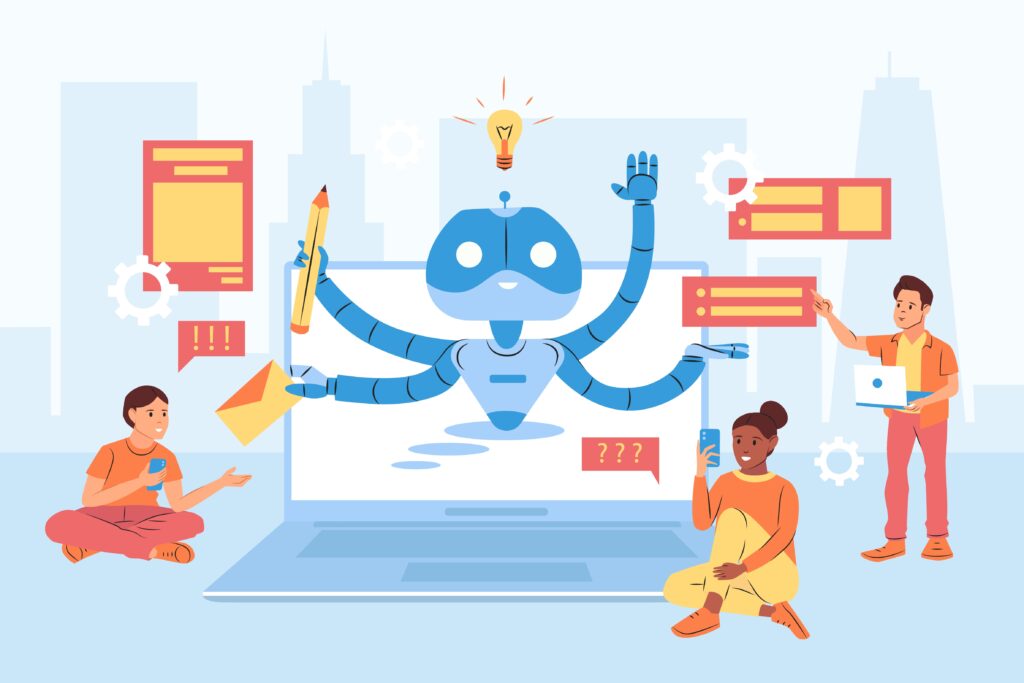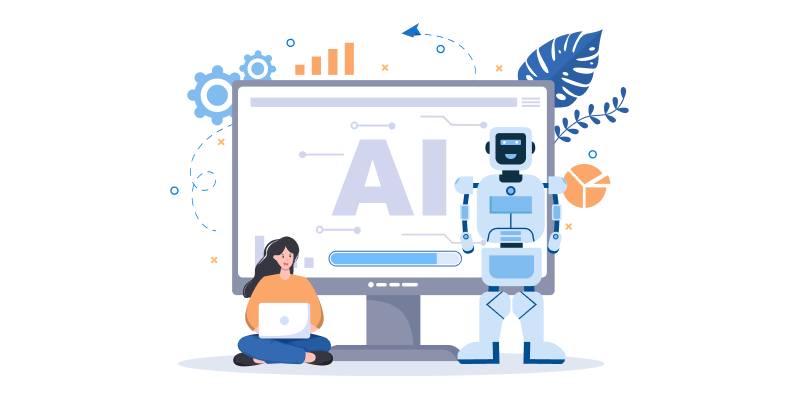Introduction
Customer Relationship Management (CRM) has long been the backbone of businesses aiming to build lasting relationships with customers. However, with evolving consumer expectations and the rise of data-driven decision-making, traditional CRM solutions are no longer sufficient. The future of customer management lies in AI CRM integration, where artificial intelligence enhances CRM systems to provide smarter insights, automation, and improved customer interactions.
In this article, we’ll explore how AI is transforming CRM systems, the benefits of integrating artificial intelligence with CRM, and what businesses need to know to stay ahead in this intelligent customer management era.
The Role of AI in CRM
Artificial intelligence in CRM is not just a trend; it’s a necessity in today’s competitive landscape. AI-powered CRM solutions use machine learning, natural language processing (NLP), and predictive analytics to optimize customer interactions and improve decision-making.
1. Predictive Analytics for Smarter Decision-Making
One of the biggest advantages of AI CRM integration is predictive analytics. Traditional CRM systems rely on historical data, but AI-driven CRMs use real-time data and machine learning to anticipate customer behavior. This allows businesses to:
- Identify potential leads and predict conversion rates
- Forecast customer needs and recommend relevant products or services
- Reduce churn rates by analyzing customer dissatisfaction signals
2. Automation and Efficiency
AI-powered CRM automates repetitive tasks, allowing sales and customer service teams to focus on strategic activities. Some key automation features include:
- Chatbots and Virtual Assistants: AI-driven chatbots handle common customer inquiries, freeing up human agents for complex issues.
- Email and Lead Scoring Automation: AI prioritizes leads based on their likelihood to convert, helping sales teams work smarter.
- Workflow Automation: From scheduling follow-ups to sending personalized marketing campaigns, AI enhances workflow efficiency.
3. Enhanced Customer Personalization
Modern customers expect personalized interactions, and AI-powered CRM systems deliver just that. With AI, businesses can:
- Analyze customer preferences and behaviors
- Provide tailored recommendations and promotions
- Customize communication across multiple channels (email, chat, social media)
4. Sentiment Analysis and Customer Insights
AI enables sentiment analysis by evaluating customer feedback, emails, and social media interactions. Businesses can:
- Detect customer dissatisfaction early and take proactive measures
- Improve products and services based on customer sentiment trends
- Enhance brand reputation by responding to concerns in real time
How AI is Transforming CRM Systems

The integration of AI with CRM systems is reshaping the way businesses manage customer relationships. Here are some transformative ways AI is changing CRM:
1. AI-Driven Customer Support
Traditional customer support often struggles with high volumes of inquiries, long response times, and inconsistent service. AI-powered chatbots and virtual assistants address these issues by:
- Providing instant responses 24/7
- Escalating complex queries to human agents efficiently
- Learning from past interactions to improve future responses
2. Intelligent Lead Management
Sales teams often waste time on unqualified leads. AI optimizes lead management by:
- Scoring and ranking leads based on engagement levels
- Identifying the best outreach strategies for different customer segments
- Automating follow-up emails and reminders
3. Voice and Speech Recognition
With advancements in voice technology, AI-powered CRM systems can process voice commands, transcribe customer conversations, and analyze speech patterns. This technology is particularly useful in call centers and voice-assisted sales applications.
4. AI-Driven Marketing Campaigns
AI CRM integration enhances marketing efforts by:
- Creating hyper-personalized email campaigns
- Optimizing ad placements based on customer behavior
- A/B testing marketing strategies for better conversion rates
Benefits of Integrating Artificial Intelligence with CRM

The benefits of integrating artificial intelligence with CRM go beyond just automation; they create a more efficient, data-driven, and customer-centric business approach. Here are some key benefits:
1. Increased Efficiency and Productivity
By automating repetitive tasks, AI-powered CRM solutions allow teams to focus on higher-value activities, increasing overall efficiency and productivity.
2. Improved Customer Experience
AI helps deliver seamless, personalized customer experiences by analyzing real-time data and predicting customer needs. This leads to higher satisfaction and loyalty.
3. Better Data Accuracy and Insights
AI eliminates human errors in data entry and analysis, ensuring businesses work with accurate, actionable insights for better decision-making.
4. Cost Savings
Automation reduces operational costs by minimizing manual workload, optimizing marketing spend, and improving resource allocation.
5. Competitive Advantage
Companies leveraging AI-powered CRM gain a significant edge over competitors by improving response times, customer engagement, and sales conversions.
Challenges in AI CRM Integration and How to Overcome Them

Despite the numerous benefits, integrating AI with CRM comes with challenges. Here’s how to address them:
1. Data Privacy and Security Concerns
AI relies on large volumes of data, raising concerns about data security and privacy. To address this:
- Implement robust encryption and compliance measures (e.g., GDPR, CCPA)
- Ensure transparent data usage policies
- Regularly audit and update security protocols
2. Integration Complexity
Many businesses struggle with integrating AI into existing CRM systems. Solutions include:
- Choosing AI-powered CRM solutions with seamless integration capabilities
- Working with CRM vendors or AI consultants for smoother implementation
3. Employee Resistance to AI Adoption
AI adoption may face resistance from employees fearing job displacement. Businesses can:
- Train employees on AI benefits and how it enhances their roles
- Promote AI as a tool for assistance rather than replacement
4. Need for Continuous Learning and Adaptation
AI evolves rapidly, requiring continuous updates. Companies should:
- Invest in AI training and upskilling for employees
- Regularly update CRM software to leverage the latest AI advancements
The Future of AI CRM Integration
As AI continues to advance, the future of customer management will see even more sophisticated applications in CRM. Some trends to watch include:
1. AI-Powered Hyper-Personalization
AI will enable even deeper personalization by analyzing biometric data, browsing habits, and real-time interactions.
2. Predictive AI for Customer Lifecycle Management
AI will predict customer needs throughout their lifecycle, helping businesses proactively address issues before they arise.
3. AI-Driven Virtual Sales Assistants
Virtual sales assistants will play a bigger role in managing leads, providing real-time insights, and even negotiating deals autonomously.
4. Augmented Reality (AR) and AI in CRM
AR and AI integration in CRM will enhance customer interactions, especially in e-commerce and retail industries.
Conclusion
AI CRM integration is revolutionizing the future of customer management, offering enhanced automation, personalization, and data-driven insights. Businesses that embrace AI-powered CRM solutions will gain a competitive edge, improve customer experiences, and optimize operational efficiency.
As artificial intelligence in CRM continues to evolve, staying ahead of trends and leveraging AI-driven strategies will be crucial for business success. The future of customer management is intelligent, and the time to integrate AI with CRM is now.




